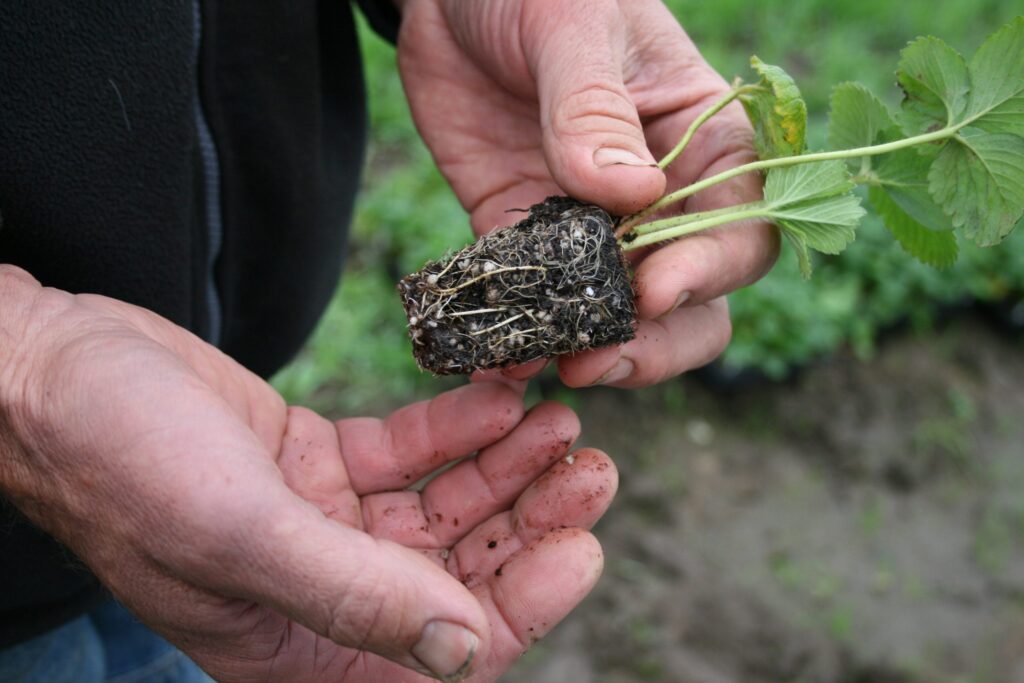Organic Strawberry Fields Forever Final Report:
Evaluation of Organic Strawberry Transplants for
Organic Strawberry Production (2018-2019)

Conventional strawberry nurseries have fumigated nursery soils for decades with methyl bromide, chloropicrin, Telone and other highly toxic, synthetic chemicals. These nurseries have served as the sole source of transplants for both conventional and organic strawberry farmers. While many organic growers have expressed dissatisfaction with having to use conventional transplants, they have no other choice because organic transplants have not been commercially available. The “commercial availability clause” contained in the USDA’s National Organic Program (NOP) regulations allows organic farmers to legally grow their fruit from conventionally propagated transplants without delineating a timeframe for phasing-out their use. As such, there has been little push from government or market forces to make organic strawberry transplants available to organic farmers who grow public varieties. Research and investments are needed to address these limitations in the organic strawberry industry and to secure a stable, commercial supply of field-tested, public varieties of organic transplants.
Besides the lack of available organic transplants, transitioning away from conventional transplants has been hindered by one important, unresolved field research question: Do organic transplants perform comparably to their tried and true, conventional counterparts on the same farm field? To address this critical question Dr. Lisa J. Bunin, Director of Organic Advocacy (OA), teamed up with Stefanie Bourcier, CEO of Farm Fuel Inc. (FFI) to test the field success of public varieties of organic versus conventional transplants.
In collaboration with five organic strawberry growers, we conducted a field study at five sites in Santa Cruz, San Mateo and Monterey Counties during the 2018/2019 growing season — November through September. Each site was designed as a replicated randomized complete block trial that examined plant growth, disease occurrence and harvestable and non-harvestable yields. Both types of transplants had roughly the same dig date, chill hours and organic production protocols. A group of 20 plants at the center of each plot was marked off with colored coded tape to serve as the data collection “window” for diameter, disease and yield measurements. Field data conclusively demonstrated that organic transplants performed equally if not better than conventional transplants at each field site. We found no significant disease occurrence at any field for either the organic or conventional transplants.
It is our hope that the data compiled from this field trial will provide organic strawberry growers with the reassurances they need to begin transitioning their farms away from conventional transplants. With this latest data now publicly available, we anticipate greater interest from strawberry nurseries in California in producing organic strawberry transplants. Additionally, with the backing of California Certified Organic Farmers (CCOF), organic strawberry farmers will be legally required to grow organic transplants and fully transition to organic as the supply grows to meet the demand. Once organic transplants become the industry standard for organic strawberry growers across the state, approximately 1.3 million pounds annually of the most hazardous pesticides will no longer be released into the environment.
